These fellowships are comprised of USask faculty members who dedicate their time and efforts to contribute to teaching and learning related work through the GMCTL. Their contributions are planned to align their expertise, experiences, interests, and the University's priorities.
Current fellowships
EDI and Indigenization
The EDI Faculty Fellowship 2024-2026 cohort is focusing on Equity, Diversity and Inclusion (EDI), Indigenization, and Open Educational Practices.
During this two-year term, there are six fellows:
- Brad Congdon, Arts and Science
- Carly Priebe, Kinesiology
- Dana Carriere, Edwards School of Business
- Joel Frey, Engineering
- Mu-Sen Kevin Chuang, Medicine
- Simonne Horwitz, Arts and Science
- Explain key terms associated with Equity, Diversity, and Inclusion (EDI), Indigenization, and Open Educational Practices (OEP).
- Reflect on and share about their positionality within the University and the larger community through discussions and personally through a method of their choosing.
- Create or revise a course design plan to integrate EDI and/or Indigenization through the learning process and materials, so the course better reflects our University's community and enables an approved sense of belonging for learners in a course of the instructor's choosing.
- Create or revise a course design plan to integrate EDI and/or Indigenization through the learning process and materials, to provide opportunities for students to meet the EDI competencies or Indigenization priority for a course of the instructor's choosing.
- Support instructors in your unit to meet these outcomes through mentoring, workshops, or other methods deemed appropriate by the instructor and unit leadership.
Sustainability
The Sustainability Faculty Fellowship engages to support faculty in designing, instructing, and assessing in ways that build student competencies for sustainability.
2024-26 Term
- Andrew Ireson, School of Environment and Sustainability
- Norman Sheehan, Edwards School of Business
- Reisha Peters, Engineering
- Scott Bell, Arts and Science
2025-27 Term
- Chantel Chizen, Agriculture and Bioresources
- Joelena Leader, Edwards School of Business
- Kenneth MacKenzie, Arts and Science
- Sarah Burningham, Law
| Term | What Faculty Fellows will focus on |
| Year 1 Spring/ Summer |
Designing a course where students are taking action on sustainability. The course will have constructive alignment that teaches the USask competencies. The sustainable action should be shared openly so that it can help others move towards the SDGs. Expect 10-20 hour time commitment of meetings and facilitated learning in May/June |
| Fall/Winter | Implement the course design (teaching). Open reflecting and sharing about teaching on sustainability. Once a term meeting between Fellows and Academic Leadership. |
|
$3500 funding is tied to completing the spring programming, one openly shared reflective piece about embedding sustainability, and completing regular check-ins with academic leadership. (Sept, Jan, Apr) |
|
| Year 2 Spring/ Summer |
Facilitation and change management skills. Action plan for change. Catalyzing others. Creating support materials for faculty. Designing opportunities for other faculty. Plan for 4-6 hours of scheduled facilitated learning. |
|
Fall/Winter |
Working with academic leadership. Mentoring peers and facilitating workshops for colleges. Effecting the ‘how’ as needed (co-created solutions with GMCTL staff). |
| $3500 funding is tied to completing spring programming and facilitating at least one faculty or departmental meeting for your home unit and regular meetings with academic leadership. | |
Past Fellowships
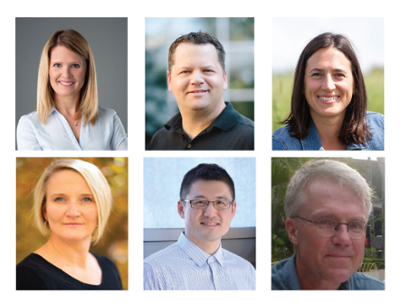
The very first cohort fellowship for sustainability included six faculty members,
- Brooke Klassen, Edwards School of Business
- Eric Micheels, Agriculture and Bioresources
- Kate Congreaves, Agriculture and Bioresources
- Shannon Forrester, Kinesiology
- Tate Cao, Engineering
- Ulrich Teucher, Arts and Science
During their first year, this group worked to embed teaching practices in their own courses such that students would be able to reflect, share, and act on key competencies for sustainability. This required the ability to align learning outcomes and assessment activities, model perspective-taking on sustainability issues, collaborate with groups or sectors beyond USask, and integrate activities where students employ adaptive systems thinking and problem solving for people, planet, prosperity, peace, and partnership. During their second year, each of the fellows worked within their colleges to support other faculty to make an impact through open educational practices and furthering learning for sustainability. This is approached in ways that meet the needs of each academic unit and may align with USask priorities such as experiential learning through community-engaged or work-integrated learning, student wellness, or other priorities.
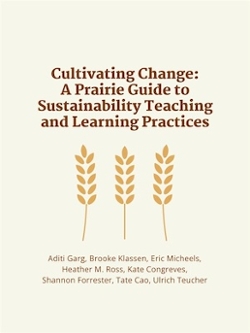 |
To see examples of embedding sustainability across disciplines, explore the samples in this guidebook created by the 2022/24 Sustainability Fellowship: Cultivating Change: A Prairie Guide to Sustainability Teaching and Learning Practices |
- Introducing the USask Sustainability Faculty Fellows Video session, Part of SDG Week 2023
- USask Sustainability Faculty Fellows Set to Evolve Learning for Sustainability USask News, 2023
- USask faculty learned as much from students in sustainability fellowship, Book launch, USask News 2024
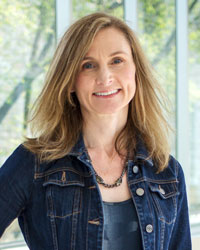
Dr. Loleen Berdahl - Fellowship Period: 2019/20
Inspired by her background working outside academia, Loleen Berdahl is committed to helping students recognize and develop career-relevant skills that employers and society need.
The Graduate Transformative Skills Project aimed to identify the training and skills our graduate students need to understand their abilities and develop the capacity to be what the world needs. Working with the cooperation and support of the College of Graduate and Postdoctoral Studies, during this one-year project Berdale drew upon knowledge of USask faculty and best practices within the U15 universities, assessed campus-wide interest in graduate career skills training, and developed a pilot project for USask students.
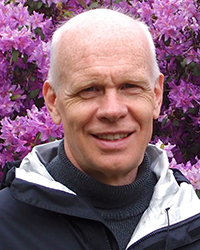
Dr. David Parkinson - Fellowship Period: 2017/18 and 2018/19
A Faculty Fellowship gave David Parkinson the opportunity to support international collaborative teaching at and beyond USask with the Project in International Collaborative Teaching (PICT).
During this Fellowship, Parkinson worked with faculty who wanted to connect with colleagues elsewhere in order to bring their complementary areas of expertise into each other's lectures, labs, seminars, studios, master classes, workshops, and field experiences. Working with allies and proponents across the institution, Parkinson used the time and scope the Fellowship provided to make international collaborative teaching a doable, distinctive, and durable aspect of pedagogy.
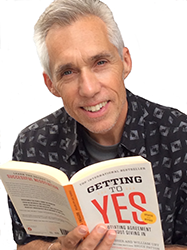
John Kleefeld - Fellowship Period: 2017
John Kleefeld's project focused on the development of Open pedagogies (teaching strategies that use or create Open Educational Resources) at the University of Saskatchewan.
Kleefeld's particular interest for this project was in utilizing Wikipedia in teaching. He published a scholarship of learning and teaching (SoTL) article on his experience of doing this with his Law students. During his year with the GMCTL, John aimed to create a community of faculty interested in open pedagogy as well as supported the development of a series of related teaching and learning events.
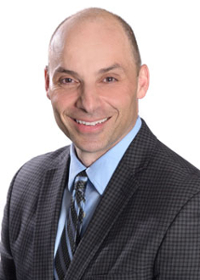
Dr. Vince Bruni-Bossio - Fellowship Period: 2016/17
A respected faculty member and teacher of Management and Marketing in Edwards School of Business since 2012, Bruni-Bossio during his fellowship period brought a wealth of business knowledge and extensive consulting experience to work with the GMCTL on our strategic planning process.
Vince helped our unit clarify our values, mission, and mandate and to set strategic priorities for the Centre's work in alignment with University priorities. Bruni-Bossio also supported the GMCTL in team development work.
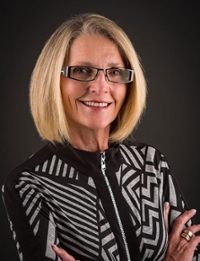
Sandra Bassendowski - Fellowship Period: 2015/16 and 2016/17
A professor with the College of Nursing (Regina Campus), Bassendowski contributed to a collaborative institutional research project on faculty use of learning technology.
This research was conducted in partnership with two other faculty members and Dr. Nancy Turner. This work has informed planning regarding institutional infrastructure and support for learning technology use with outcomes being implemented via an action plan governed through the Teaching Learning and Academic Resources Committee of Council (TLARC). Bassendowski also informed work in the GMCTL on teaching strategies in distributed learning.
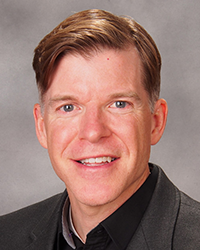
Dr. Jay Wilson - Fellowship Period: 2014/15 and 2016/17
During his fellowship, Wilson, an associate professor and head of the Department of Curriculum Studies, contributed to a collaborative institutional research project on faculty use of learning technology.
This research was conducted in partnership with two other faculty members and Dr. Nancy Turner. This work has informed planning regarding institutional infrastructure and support for learning technology use with outcomes being implemented via an action plan governed through the Teaching Learning and Academic Resources Committee of Council (TLARC). Wilson also contributed to the development of the Teaching Certificate Program.
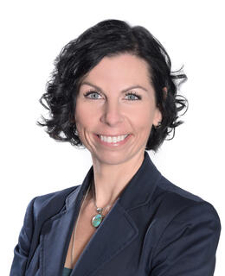
Dr. Chelsea Willness - Fellowship Period: 2015/16
During her fellowship, Willness, an Assistant Professor and Grandey Scholar in Sustainable Leadership at the Edwards School of Business, undertook a significant institutional project to develop a more comprehensive understanding of how ’teaching quality’ is conceptualized at our institution.
This work served as Phase I in the development of a Teaching Quality Framework which was intentioned to provide clarity in how the institution defines and assesses teaching quality and to guide teaching enhancement work across the institution.
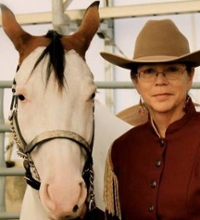
Dr. Winona Wheeler - Fellowship Period: 2014/15 - 2015/16
Wheeler is a member of the Ochekwi Sipi (Fisher River) Cree Nation in Treaty No. 5 territory (Manitoba) though her family hails from George Gordon’s First Nation in Treaty No. 4 territory (Saskatchewan).
In her capacities as professional historian and as an associate professor and Department Head of Indigenous Studies, Wheeler was intimately involved in the development of the Indigenous Voices program offered through the GMCTL, working with our team in developing a strategy and vision for this work and contributed significantly to the design and delivery of tailored Indigenous Voices programming during her fellowship.
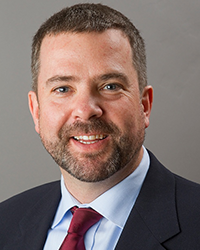
Dr. Douglas Clark - Fellowship Period: 2014/15
During his fellowship, Clark worked with the GMCTL in developing the Graduate Professional Skills Certificate that is offered to graduate students and postdoctoral fellows across USask.
This programming benefited greatly from Clark's experience in preparing graduates for employment post graduation and his passion and enthusiasm for this work was contagious. The result of his work was a well established certificate, which supports graduate students and postdoctoral fellows in developing and articulating their professional skills in preparation for productive contribution to society on completion of their academic studies.
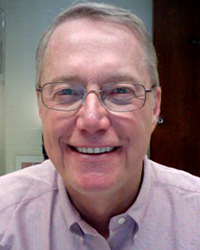
Rick Schwier
Richard A. Schwier is Professor Emeritus of Educational Technology and Design (ETAD) at the University of Saskatchewan. During his 36 year career at the U of S, he served as the Department Head of Curriculum Studies and the Coordinator of Graduate Programs in ETAD. He was also the principal investigator in the Virtual Learning Communities Research Laboratory, which investigated the nature of interaction and learning in formal and informal online settings. His current research addresses pedagogical issues in design disciplines, particularly instructional design. His teaching was recognized with a U of S Master Teacher Award, and a 3M National Teaching Fellowship.
Get support
For support or a consultation on this topic, reach out to the team at the Gwenna Moss Centre for Teaching and Learning.
Loading...

